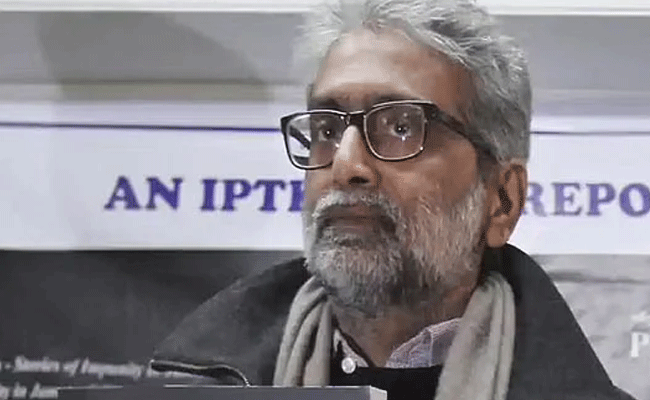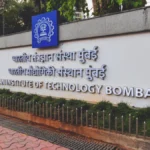Civil rights activist Gautam Navlakha, who is currently out on bail in the Bhima Koregaon 2018 violence case, has filed a plea before the special NIA court seeking permission to permanently reside in Delhi. Citing economic hardship and logistical constraints of living in Mumbai, Navlakha highlighted that his permanent residence, employment base, and social network are all in Delhi.
Navlakha, now in his 70s, was granted bail in December 2023 under strict conditions that required him to stay within the jurisdiction of the Mumbai-based NIA court. However, in his application filed on April 21, he stated that continuing to live in Mumbai has become financially unsustainable due to unemployment and a lack of affordable housing.

Struggles in Mumbai, Roots in Delhi
Navlakha noted that he and his partner Sahba Hussain have been unable to find stable accommodation in Mumbai for over four months. The plea underlined that his work as an eminent journalist was centered in Delhi before his arrest, and that remaining employed was essential to sustain himself during the prolonged legal battle.
“During his stay in Mumbai, the applicant-accused has been unemployed and financially dependent on friends and family to date,” the plea stated.
He also expressed concern about his 86-year-old ailing sister in Delhi, emphasizing his need to be closer to her and the family support system.
Reaffirming Compliance and Court Availability
Navlakha assured the court that if granted permission to move to Delhi, he would fully cooperate with legal proceedings and appear before the court or investigation officers as and when required. He reaffirmed his commitment to all bail conditions imposed by the Bombay High Court and the Supreme Court.
The special NIA court has not yet ruled on the plea. Meanwhile, hearings on discharge applications filed by all 16 accused in the Bhima Koregaon case are underway.
Background: The Bhima Koregaon Case
Navlakha is among 16 intellectuals, scholars, and civil rights activists arrested under the Unlawful Activities (Prevention) Act (UAPA) for allegedly inciting violence at Bhima Koregaon, Pune, on January 1, 2018. The unrest followed the Elgar Parishad event held a day earlier in Shaniwar Wada.
The incident was tied to the commemoration of the 200th anniversary of the Battle of Bhima Koregaon, where Dalit soldiers under the British East India Company defeated Peshwa forces, a symbol of resistance and assertion for the Dalit community.
So far, eight of the 16 accused — including Varavara Rao, Sudha Bharadwaj, Anand Teltumbde, Vernon Gonsalves, Arun Ferreira, Shoma Sen, Gautam Navlakha, and Mahesh Raut — have been granted bail. However, Raut remains in jail pending a Supreme Court verdict on the NIA’s appeal against his release.
The outcome of Navlakha’s plea will not only affect his personal circumstances but could also set a precedent for bail condition modifications in long-drawn trials under UAPA and similar stringent laws.
“The applicant-accused has a long pending trial to face which requires finances. Hence, it is crucial for him to be employed and financially stable,” the plea said. It says that he undertakes to make himself available and present before the court and the investigating officer as and when required, and to ensure that his absence will not cause any delay in trial. The plea also said that his 86-year-old sister lives in Delhi and is in frail health and he wishes to reside in the same vicinity as her. The plea also states that Navlakha undertakes to not leave the jurisdiction of Delhi without prior permission of the court, except to return to Mumbai.
The special court has directed the NIA to file a reply to the plea. Navlakha and 15 others were arrested in the Elgaar Parishad case where the NIA claims that the accused had links with banned organisation CPI (Maoist). The trial in the case is yet to begin. Previously, co-accused Telugu poet Varavara Rao had also similarly sought permission to live in Telangana, citing high cost of living in Mumbai. While he was permitted to travel for medical reasons, his plea for permanently moving out of Mumbai was rejected.









